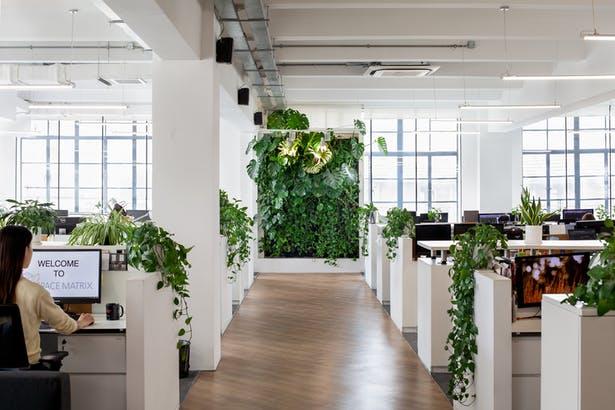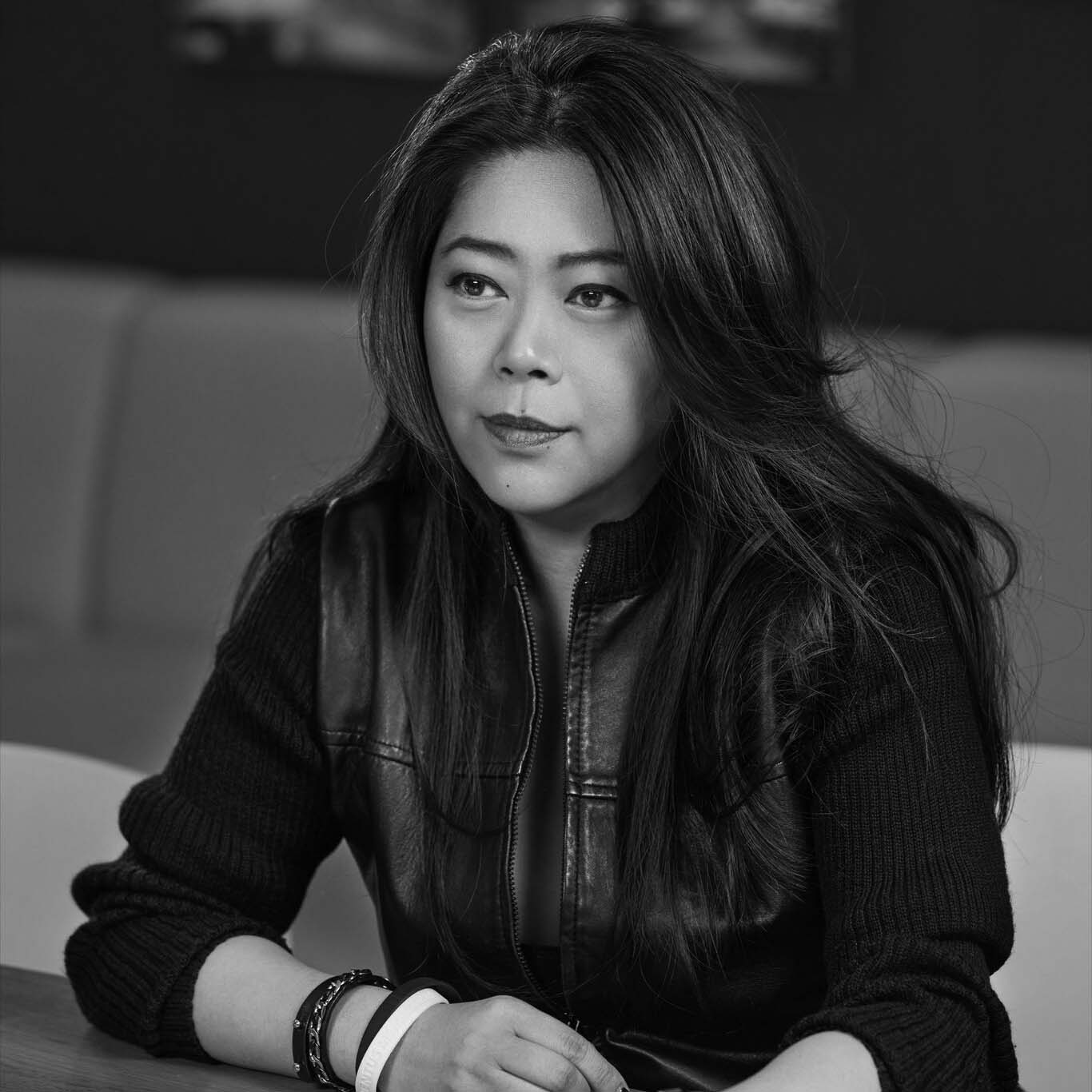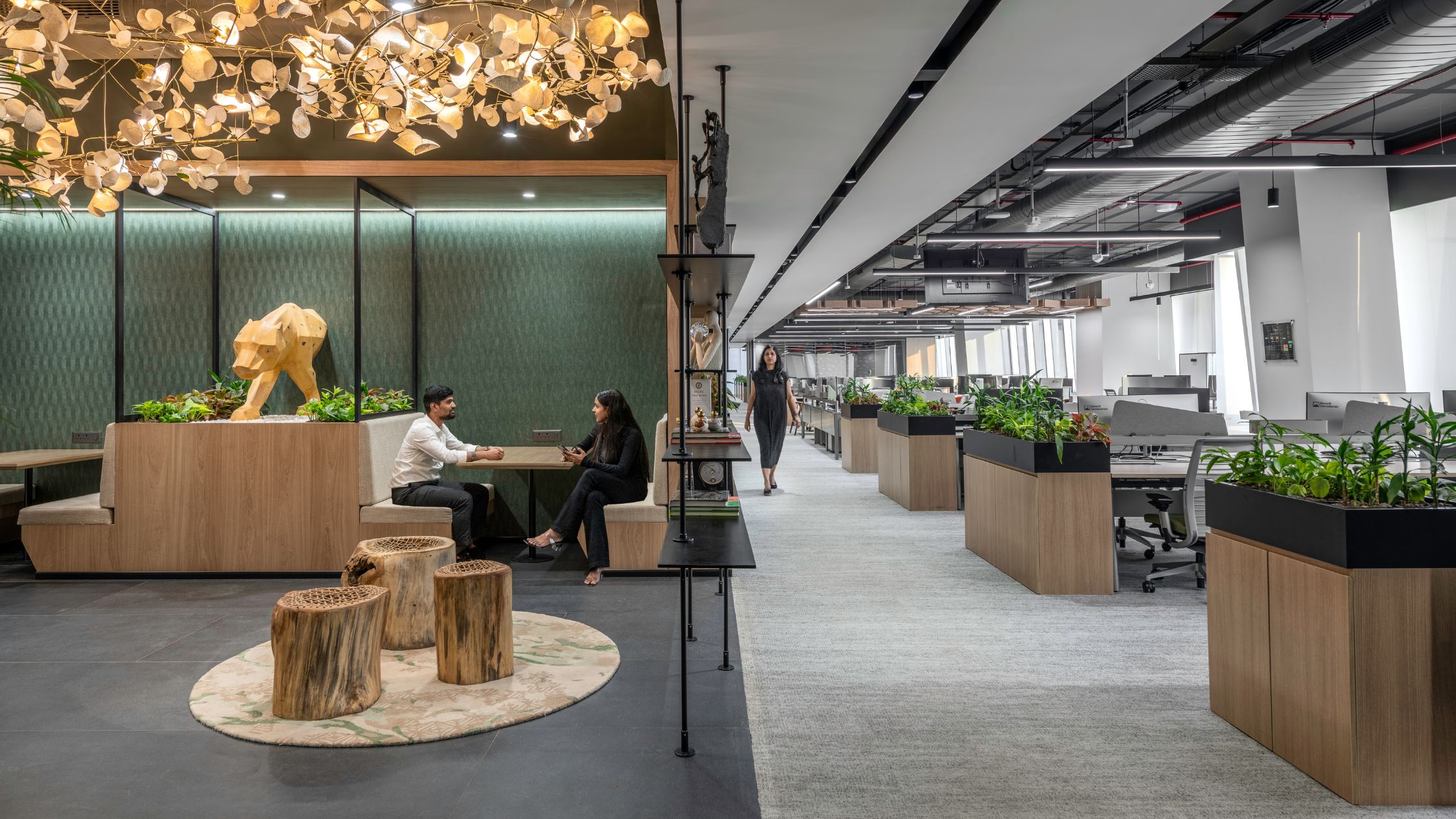Carving out a niche for ourselves — and a unique workplace identity for organisations in China
Back in 2018, we at Space Matrix made the strategic decision to start independent operations in China as a part of our global growth plan. Over the last decade, China has burgeoned into an urban and sophisticated ecosystem, where good design is valued and the finer aspects of life are appreciated. This change in tastes and preferences can be traced through the rising demand for fancy cars, trendy restaurants, and haute couture.
This evolution convinced us that we could add value to this competitive landscape with our design talent and innovative approach to design solutions. However, we had one challenge that we first needed to overcome. This was our first foray into China, so we were the “new kids on the block”. We needed to prove our capabilities within the geography and build our local credibility up from scratch.
Fast forward to the end of 2020, and we are thrilled to report that our foray into this new market has been successful. From the time we acquired Muraya as our local partner in 2018, our Gross Profit is up by 278%, and we have seen a 319% increase in business leads. Through the new projects we delivered, we have now increased our designed square-feet coverage by 152%. The journey from being a relatively unknown player to becoming a trusted design-and-build partner for several big national organisations in China was not easy.
Here are 3 things we did to carve out a niche for ourselves in China, which eventually worked for us.
1. We leveraged our own journey to help clients communicate their brand DNA
After much soul-searching about how to create an authentic yet differentiated strategy in China, we decided to go back to our roots and analyse what had worked for us in the past. When Space Matrix first started operations in Singapore nearly two decades ago, building solid relationships was our top priority — and those relationships soon became the core of who we are. We decided to leverage this strategy in China too.
Rather than offering the latest trends as quick solutions to a vast portfolio of clients, we made the conscious decision to stay boutique. This enabled us to invest our efforts in building relationships and remaining approachable. This also meant that we were spending a lot of quality time engaging with clients, taking a deep dive into their brand and understanding their goals, missions, and values. This in-depth knowledge, together with the fact that we ourselves had recently gone through the process of uncovering our own brand DNA in a new market, put us in a distinctive position.
We realised we were uniquely placed to help young and expanding Chinese unicorns shape their workplace culture, while assisting real estate veterans in crafting a bespoke branding strategy on their new real estate products and communicating it effectively to the world.
Not just that, we were also able to identify ways in which their workspaces could support and boost their long-term business goals to offer optimised return on investment. We could thus go beyond being just their design partner — we were actually able to provide an all-round strategy driven by business design intelligence.
2. We led with a design-focused approach
Given the premium that is currently placed on quality design in China, we knew that we could safely lead with a design-focused approach. Once we zeroed in on our clients’ brand DNA and established how it would fit in with their overall business vision, we could begin the process of conceptualising the design. Ours is a team of design thinkers and innovators who are well-equipped to translate the core understanding of the brand into highly stylised, sophisticated design aesthetics. This is also where Space Matrix’s ‘big engine’ of international resources comes into play, along with our local team of highly experienced architects, interior designers, graphic designers, knowledgeable research analysts, and experts in workplace strategy. This allowed us to understand the clients’ needs and business concerns through a local context and also offer international design solutions. In the last two years, we have enabled multiple players such as Lenovo, Vanke, SPCG, DaHao, CapitaLand, and Landsea in the real estate industry to develop and differentiate their product ideas through our unique design intelligence.
Together with Ascendas, we affirmed the final vision for its 4-tower campus spread over 160,000 sqm through studies, workshops, analyses, business intelligence, and focus group workshops. The Alpha Park is designed as a one-of-a-kind technology park, with an experience centre that acts as a talent portal to attract and embrace different individuals working in the technology industry. The entire visionary space was designed with this tagline in mind — ”We meet in the future”.
3. We enabled successful companies to diversify their portfolio
New and successful firms in China often decide to invest in a space — not just for their own use but also to diversify their portfolio by developing real estate subsidiaries. In such cases, these organisations look for a partner who would be able to help them develop the property and position it in a unique way. With Space Matrix’s capabilities and experience in the real estate industry, we were able to step up as that consultative partner — thereby fulfilling yet another niche market requirement in China.
We recently designed and completed Vanke’s headquarters in Shenzhen, where we learned a lot about their culture and particularly their vision. Being exceptionally well known for its residential successes, it was critical that Vanke’s first commercial conquest did not fall short of expectations.
This deep understanding of the brand came to good use when they approached us to assist with their 81,330 sqm campus backed by the investment of the Futian government. This pioneering project was envisioned as an intelligent manufacturing industrial park, and through our studies and our research analysis into the potential branding of this new campus, a differentiated concept was created.
This unique concept was built around the idea of Nexus, a shared community platform and connection point for innovative technologies. Here, an ecosystem has been built to inspire collaboration, innovate together, think big, and yield amazing results for a creative and advanced technological future. The design of the space oozes an abundance of curiosity and creativity, balancing modern design for a smart, technology-enabled future.
With over 25 years of experience in real estate, design and construction industries, our Regional Managing Director, Cynthia Chan is responsible for business operations, strategic planning, project management, human resources, design technology, and client relationships for North Asia. Cynthia has received numerous awards for her work, including Outstanding Individuals in Industry 2009 and Landmark Project Achievement from RFP Magazine.
If you are looking to interpret your brand DNA and establish it through a bespoke design strategy, our consultants will be happy to have a chat with you.






